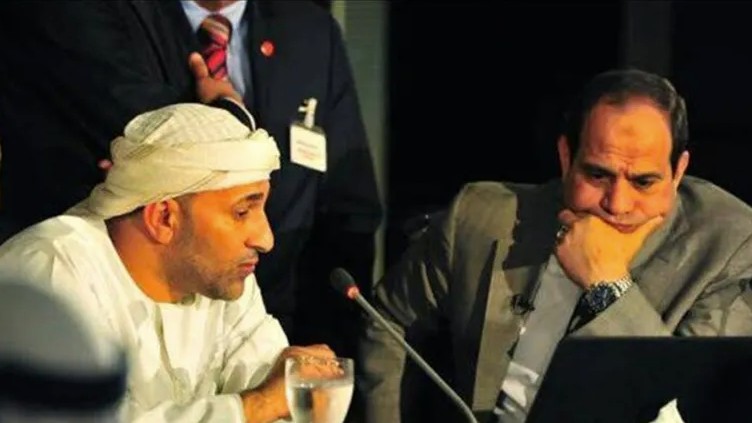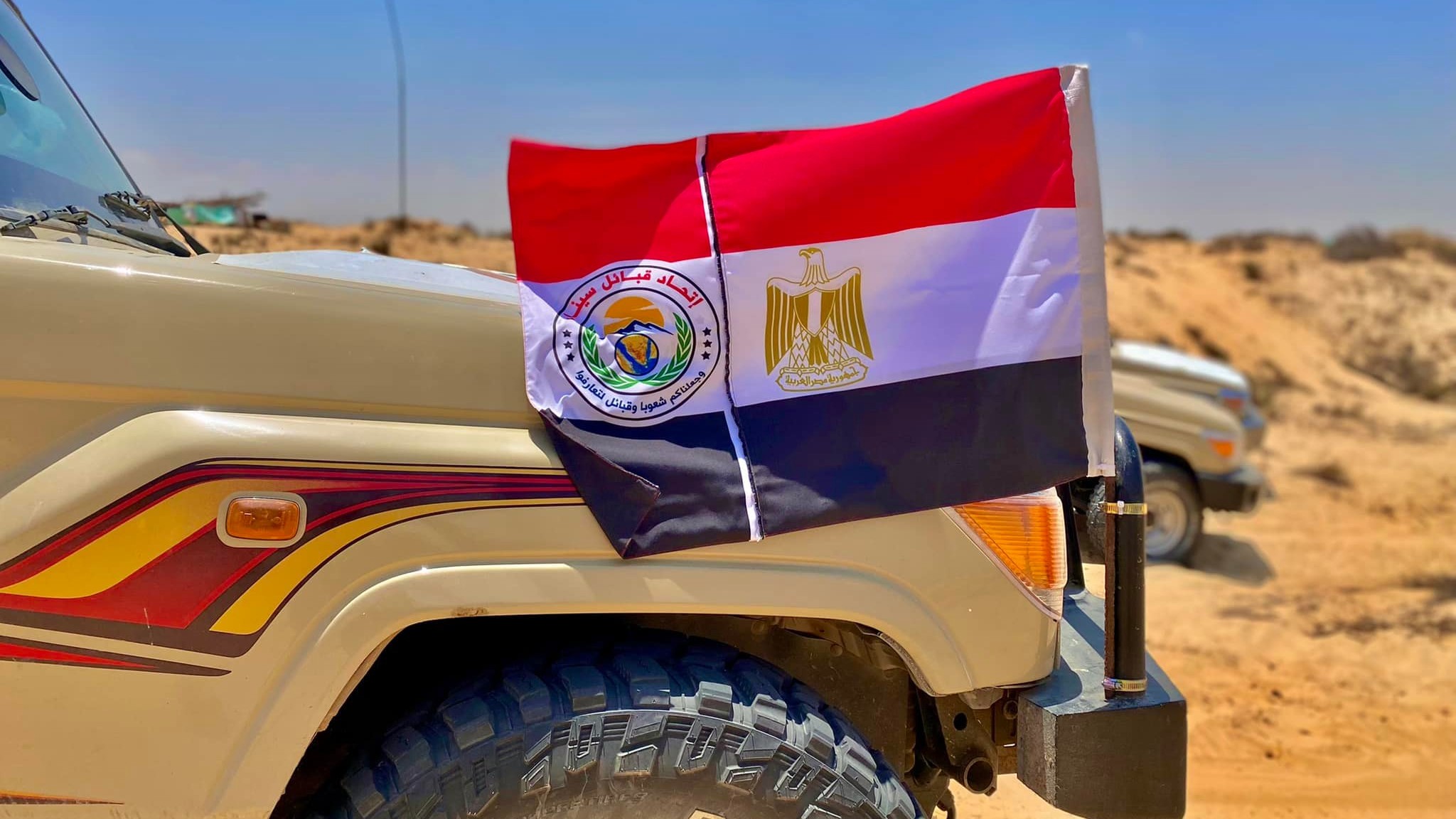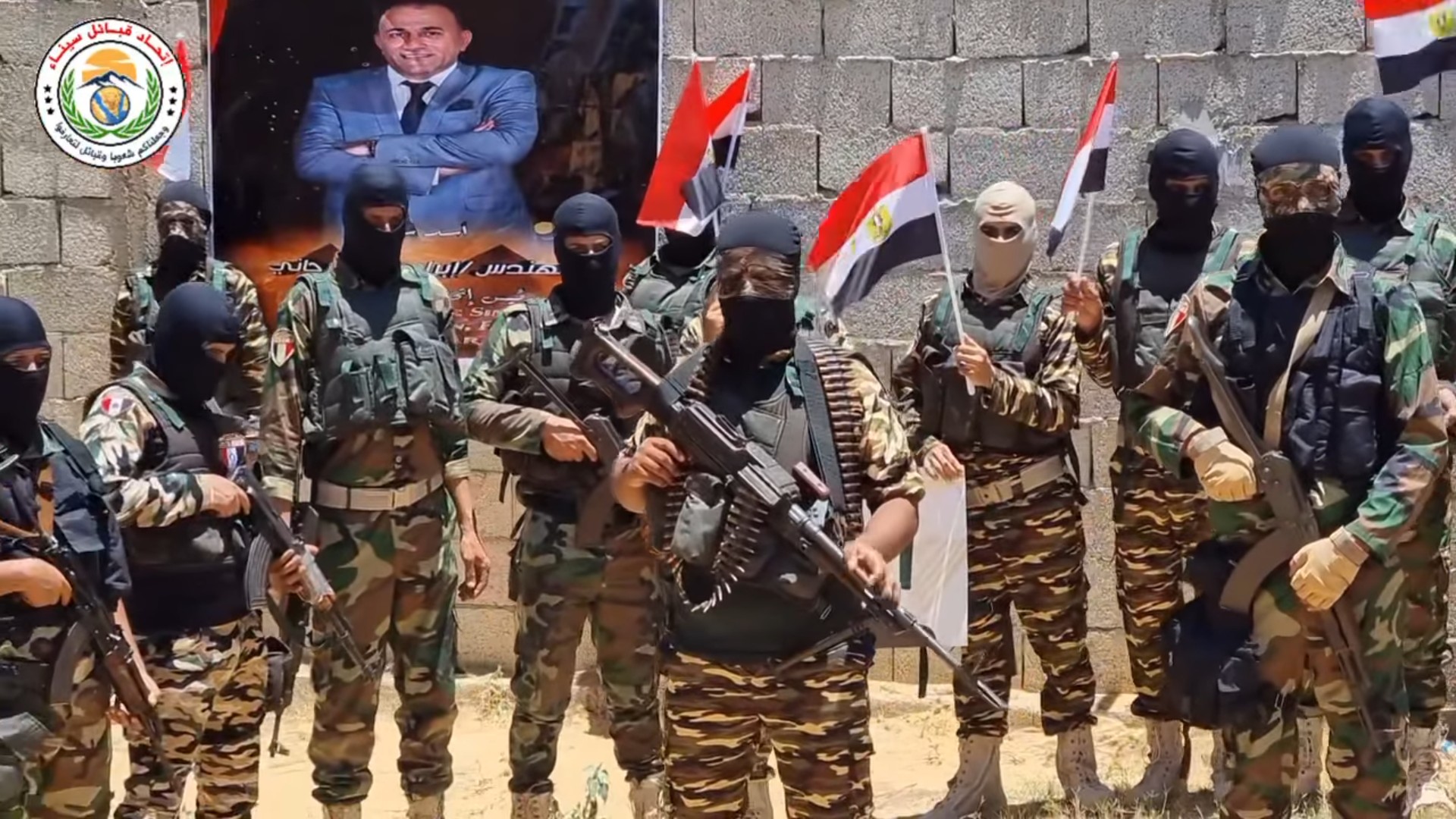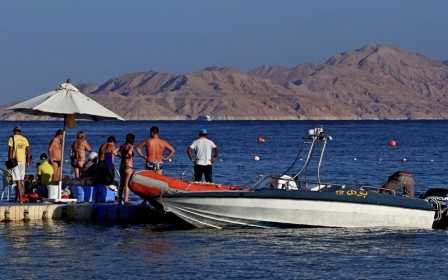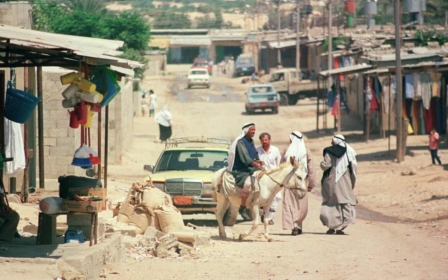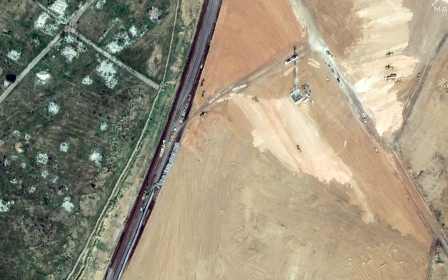Egypt: Meet Ibrahim al-Organi, the Sinai tribal leader under scrutiny over Gaza war
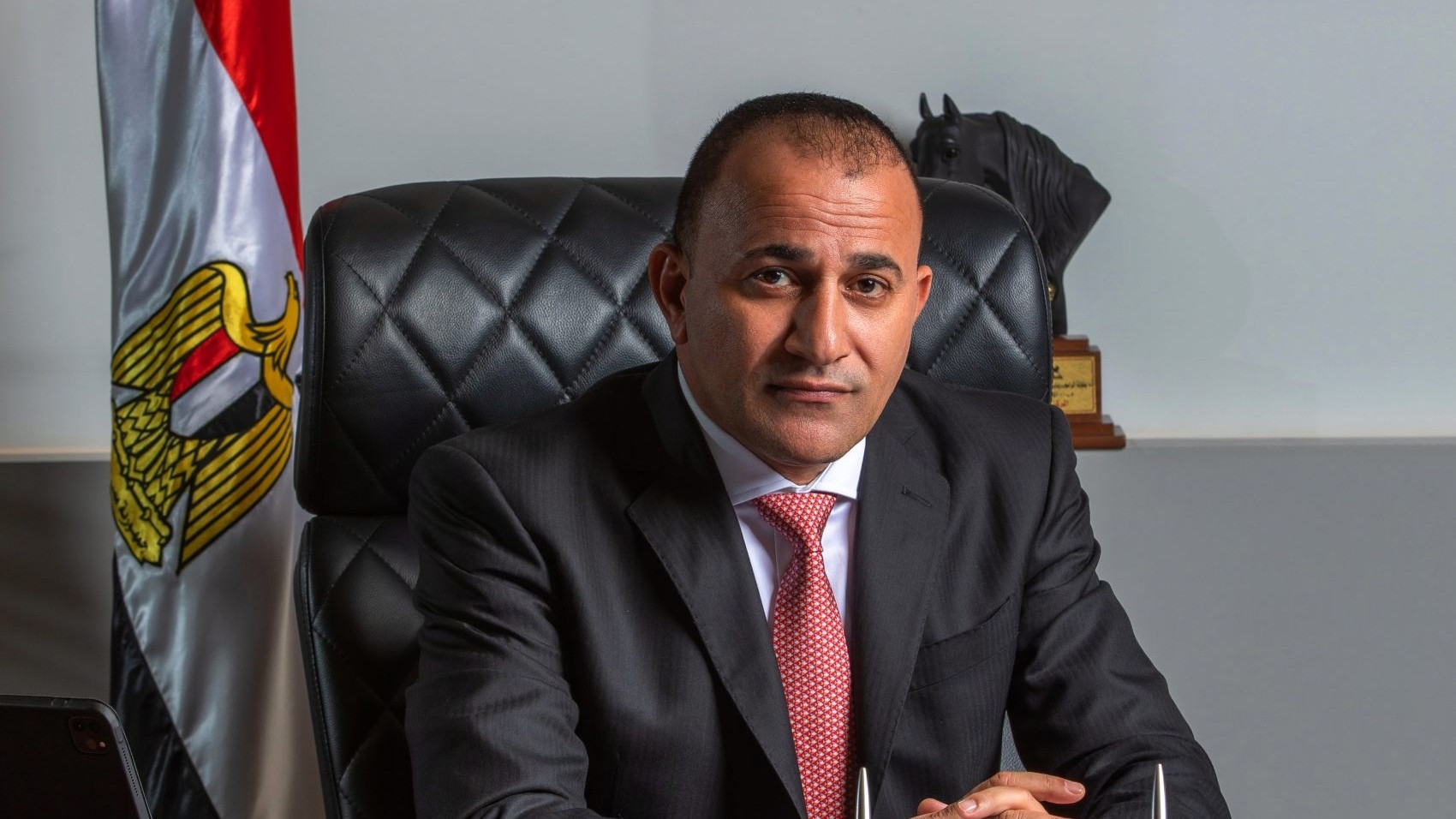
About 15 years ago, Sinai tribal leader Ibrahim Organi was in jail, suffering what he described as “severe torture” by senior police officers.
“Every day, at 6 am, they would take me out of the cell, blindfold me, and release six trained dogs without claws, with garbage tied to their mouths. The dogs would then approach and intimidate me while I had my eyes closed, unable to see anything,” he told Rose al-Yusuf magazine, in a now-deleted interview.
It was a few months before millions of Egyptians took part in nationwide protests that ended with the resignation of then-president Hosni Mubarak. The protests were partly triggered by several documented incidents of torture at the hands of police and security officers.
“One day, they brought three prisoners on death row, dressed them in women's nightgowns, and invited all detainees to watch them. They told me it would be my turn the next day and attempted to do the same to me," he said.
Organi said he suffered a stroke due to torture and ended up at a hospital, partially paralysed.
New MEE newsletter: Jerusalem Dispatch
Sign up to get the latest insights and analysis on Israel-Palestine, alongside Turkey Unpacked and other MEE newsletters
Organi was serving time in jail for kidnapping dozens of police officers after an incident in which his brother was killed by an officer at a checkpoint in Egypt's Sinai Peninsula. He was released about two years later.
The same man, now 50 years old, is currently considered one of the closest allies to President Abdel Fattah el-Sisi and the Egyptian military. He owns a gigantic business empire spanning construction, quarry mining, travel, hospitality, and private security.
Since the Gaza war broke out on 7 October, during which Israel imposed a strict blockade on the Palestinian enclave, Organi has wielded significant influence on the movement of people and goods between Gaza and neighbouring Egypt through his companies.
There have been reports that his companies, some of which are part-owned by the Egyptian security services, have even demanded bribes to allow aid into Gaza and people out of the enclave.
Middle East Eye asked the Organi Group and the Egyptian State Information Service for comment but did not receive a response before publication.
Along with his business empire, he also heads a controversial Sinai militia known as the Union of Sinai Tribes, which has worked closely with the Egyptian army in its fight against a local Islamic State group affiliate but now faces an unknown future after the official end of the military operation.
Organi has come under increasing media scrutiny since the Gaza war. One independent outlet has labelled Sinai as the “Organi Peninsula”, reflecting his widespread influence in the northeastern region. Another portrayed him as the “Hemeti” of Egypt, drawing analogies between him and the Sudanese warlord Mohamed Hamdan Dagalo.
But how influential is Organi? And does he really have the potential to emerge as a rival to the Egyptian army as Hemeti has done in Sudan?
MEE explores Organi’s history and how he rose to prominence in Egypt.
Who is Ibrahim al-Organi?
Ibrahim Gomaa Salem Hassan al-Organi was born in Sheikh Zuweid in northern Sinai on 4 December 1974. According to his ID, his official address is in Abu Tawila village in Sheikh Zuweid.
He hails from the Tarabin tribe, one of the three largest tribes in North Sinai, the two others being Sawarka and Romaylat.
Currently, he heads the Union of Sinai Tribes, a paramilitary group mostly made up of members of his own tribe.
According to a Sinai tribal source, Organi started his career as a taxi driver in northern Sinai, using his pickup truck.
He was also engaged in lucrative smuggling activities to Gaza and Israel, said the source. Organi is also believed to have earned money by charging businessmen who used his tribe’s area for construction projects.
The Tarabin, Sawarka, and Romaylat were the subject of a ferocious security crackdown in the aftermath of bombings that hit several tourist destinations in south Sinai between 2004 and 2006.
The arrest campaign targeted several thousand tribesmen, as well as some women who were detained to force their male relatives to surrender themselves.
The crackdown prompted the tribes to organise a series of protests and sit-ins in April and July 2007. The protest movement at the time was referred to in the media as the "We Want to Live" movement ("Wedna Nieesh" in Arabic).
Then in his early thirties, Organi participated in the protests and sit-ins. But he also simultaneously acted as a mediator between the security services and the tribes, along with two other more influential members of his Tarabin tribe at the time, Mousa al-Deleh and Salem Lafy, the Sinai source told MEE.
Organi had close relationships with the security services because of his smuggling activities, the source said.
In his interview with Rose al Yusuf, which has been wiped from the website, Organi portrayed himself as a victim of police brutality and a proponent of the rights of his tribe against the repression of security forces. He said the protests in Sinai were a prelude to the 2011 revolution against Mubarak.
“What people don’t realise is that the revolution began in our region, months earlier than Cairo. The injustice was unbearable. They were firing at every peaceful protest that we held,” he told Rose al Yusuf in September 2011.
He added that the Sinai tribesmen organised their protests near the border with Israel rather than in their villages because they felt safer being in a demilitarised zone.
Brother killed by police
In November 2008, there was a turning point in Organi’s relationship with the state.
As part of his mediation efforts, Organi sent his brother and two relatives to attempt to de-escalate the situation at one sit-in held in front of a police headquarters in Sinai, near the Israeli border. People had gathered there to protest what they considered the extrajudicial killing of tribesmen by police officers that month.
“I called my brother, and he went with his friends to calm the situation until we arrived. Ahmed, my brother, was shot 121 times, all in the back,” he told Rose al Yusuf, naming one police officer as the killer.

“There was no single shot from the front, according to the forensic report, which confirms that the officer betrayed my brother and there was no confrontation.”
Organi said his brother and two companions were killed and buried in a garbage dump near the Israeli border. He said the officers wanted to create the false impression that they were killed during smuggling operations. Media reports at the time cited police forces as saying they were killed for carrying arms and defying officers at a checkpoint.
Fellow Tarabin heavyweight Lafy said when he and Organi found the corpses, they filmed the scene and submitted the footage to a parliamentary fact-finding committee.
In retaliation for the killing, members of tribes, led by Organi and Lafy, besieged several police stations in Sinai, seized weapons, and held dozens of police officers captive.
Organi said he held them captive in order to “protect them from the revenge of the victims' families” and also to pressure authorities to bring the alleged killer to justice.
A day later, Organi and Lafy were contacted by a senior interior ministry official who promised to settle the dispute if they hand over the detained officers, according to accounts by both men.
But the two were detained once they met the ministry official and charged with what Organi described as “criminal and political” charges.
While Lafy was able to escape prison in February 2010 with the help of tribesmen, Organi remained in jail for 23 months, until his release in July that year. He said he was deliberately transferred between prisons that are distant from Sinai, including Burg el-Arab and al-Wadi al-Gadeed. During his detention, Organi said he was popular with other inmates and was “elected” as their representative with prison authorities.
Militia leader
Organi has also established himself as an influential militia leader in the Sinai Peninsula.
The years following the 2011 revolution witnessed the emergence of militant groups in Sinai that were first affiliated with al-Qaeda but later pledged allegiance to the Islamic State and rebranded itself as the Sinai Province.
After leading a 2013 coup against Egypt's first democratically elected president Mohamed Morsi, former defence minister, General Abdel Fattah el-Sisi declared a “war on terrorism” against the militants in Sinai.
Yet Egypt's peace treaty with Israel means there are limits to how many Egyptian troops are allowed to be stationed in Sinai. To bolster his troops, Sisi turned to local tribes, including Organi’s, to take up arms against Sinai Province alongside the army. The tribes also provided additional combat experience due to their knowledge of the desert environment and fighting tactics, according to Organi.
According to the Sinai tribal source, the state asked the Tarabin, Sawarka, and Romaylat tribes to participate in the fighting.
The Sawarka and Romaylat put forward a condition that each tribe fights within its territory. But the army rejected it and relied instead on the cooperation of individual members of the tribes, including Organi, Lafy, and Deleh from the Tarabin and other members of the Sawarka and Romaylat.
In 2015, Organi, Lafy, and Deleh formed the Union of Sinai Tribes, a Tarabin-dominated militia. The union became the Egyptian army’s main ally in fighting Sinai Province. Its activities were limited to the Tarabin tribal lands, and the militia succeeded in defending against attacks while the IS affiliate expanded into the territory of other tribes, even reaching the capital of North Sinai governorate, al-Arish.
Sinai Province militants attacked and destroyed Organi’s home in 2015 in retaliation for his militia's resistance.
Initially in charge of the Union of Sinai Tribes’s financial affairs, Organi assumed leadership of the militia following the killing of Lafy and sudden retirement of Deleh in 2017.
The Union became more institutionalised under Organi’s leadership and members were paid a monthly salary and carried special ID cards, according to Mada Masr. The militia also began to attract members of other tribes.
Sinai Province was officially defeated in 2022. But the Union has not been dismantled and its current goal is unclear.
In a widely publicised visit by Prime Minister Mostafa Madbouly to North Sinai governorate in October, during Sisi's electoral campaign, Organi appeared side by side with Madbouly and senior military officers. Trucks bearing the Union of Sinai Tribes’s name escorted the prime minister’s convoy.
“Never in the history of Egypt has there been a militia so promoted and publicised like Organi’s,” said Mohannad Sabry, a security analyst and Sinai expert.
“It was a new case of equating an undefined militia outside of the boundaries of the law with the state authorities,” Sabry added.
The analyst called the Union of Sinai Tribes "a rogue entity, an illegal outfit”.
“We’ve seen actual evidence over the past 10 years of these militia members executing civilians alongside members of the army. Their actions were designated war crimes by rights groups, but nothing happened about it,” he said.
Human Rights Watch and the Sinai Foundation for Human Rights have previously documented several incidents of extrajudicial killings by the militia, aided by the Egyptian army.
Business empire
In addition to his role in the militia, Organi’s business activities have come under the spotlight following the Israeli war on Gaza.
Two of his companies have monopolised the movement of people and goods via the Rafah crossing, the only gateway for Gaza that is not directly controlled by Israel.
The Sons of Sinai, a construction and contracting firm, controls exit permits for trucks and other goods, while Hala for Consulting and Tourism Services has exclusive rights to control the transportation of travellers to and from the Gaza Strip.
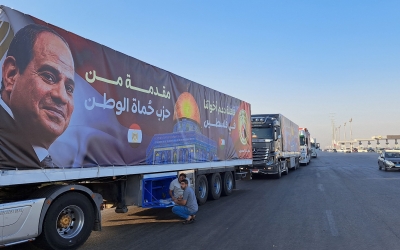
In January, an international charity told MEE it is being forced to pay $5,000 a truck in the form of a “management fee” to a company affiliated with the Sons of Sinai. The charity described the payment as a bribe, and accused the Egyptian state of profiteering from the dispatch of humanitarian goods.
An investigation carried out by the Organised Crime and Corruption Reporting Project (OCCRP) and independent Egyptian website Saheeh Masr found that intermediaries affiliated with Hala were selling exit permits at prices ranging from $4,500 to $10,000 for Palestinians and $650 to $1,200 for Egyptians.
Organi launched his business empire in 2010 shortly after his release from prison, starting with the Sons of Sinai. It was initially a stone quarry enterprise, according to his interview with Rose al Yusuf.
Two years later, it was one of two contracting companies tasked with reconstruction efforts in Gaza in the aftermath of the devastating Israeli military operation against the Palestinian enclave in 2012.
Then, following the 2014 Israeli offensive on Gaza, the Sons of Sinai assumed a greater role in reconstruction efforts by monopolising the transport of goods into the enclave via the Rafah crossing.
That year, Organi was appointed the chairman of the board of directors of another company, Misr Sinai for Industrial Development and Investment, in which the majority shareholder is an authority affiliated with the Egyptian army, according to an investigation by Mada Masr.
After Organi became the head of the Union of Sinai Tribes in 2017, he expanded his Sons of Sinai and Misr Sinai companies. Misr Sinai began exporting goods to Gaza, and the former head of military intelligence in North Sinai, Brigadier General Loay Zamzam, became Organi’s deputy chairman, according to the company's Facebook page.
A fourth company, Sons of Sinai for Construction and Building (separate from the previous firm called Sons of Sinai), was set up in 2021 following that year's Israeli attack on Gaza and was tasked with reconstruction in the enclave in a contract worth $500m paid by the Egyptian state, according to reports by Egyptian state-linked media outlets.
Neom for Real Estate Development, another company owned by Organi, signed agreements in January with the eastern Libya government to take part in the reconstruction of Derna following the devastating floods that destroyed much of the Libyan city last year. Organi was pictured following the agreement with Belqasim Haftar, the son of the eastern Libya commander Sisi ally Khalifa Haftar.
The Organi Group, which acts as an umbrella for his firms, also includes a security services company, Itous, that has been contracted to oversee several major sports events.
In January 2022, Sisi appointed Organi as a member of the Sinai Development Authority, a state agency with exclusive control over development and construction activities in the peninsula.
“The position gives him exclusive rights to approve such projects, which constitutes a conflict of interest, because of his status as a businessman himself,” said a North Sinai tribal source.
‘A front for the state’
Two Sinai tribal sources downplayed Organi’s potential as a challenger of the state.
“For us, he is a front for the state,” said Masaad Abu Fajr, from the Romaylat tribe.
“He has committed war crimes, but his actions reflect the state, not the Sinai residents,” he added.
'Organi is a front. He’s a name. It could be replaced on any given day'
- Mohannad Sabry, analyst
A second Sinai tribal source, who spoke on condition of anonymity, agreed with Abu Fajr.
“He is a front for political and military leaders,” said the source. “They can topple him anytime if he stops serving their interests.”
Likewise, Sabry, the analyst, said Organi is significant not for his own personality but for the state interests he represents.
“Organi is not personally responsible for the Rafah crossing and laying a monopoly over movement through it. He's representing the state-level policy controlling the terminal,” Sabry told MEE.
The state policy, according to Sabry, is to “make money out of the dire situation in Gaza”.
“The state is outsourcing this business to someone who can do it on their behalf. Organi is a front. He’s a name. It could be replaced on any given day,” he said.
“Sinai has always been a militarised and excluded part of the country. It has never been fully incorporated in the state system and social fabric," Sabry added.
"The state’s only way of exerting control on the region is to find people from within the community and have them do the job for them.”
Middle East Eye delivers independent and unrivalled coverage and analysis of the Middle East, North Africa and beyond. To learn more about republishing this content and the associated fees, please fill out this form. More about MEE can be found here.


